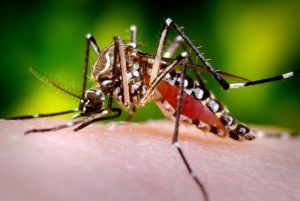NewsDesk @infectiousdiseasenews
Health officials in the city of Ahmedabad in Gujarat state in western India are reporting large increases in mosquito-borne diseases, in particular dengue fever and chikungunya.

From the beginning of the year through December 4, city officials reported 2,999 total dengue fever cases, an increase of nearly 600% from last years total of 432.
In addition to dengue, chikungunya cases are up 77% from 2020 to 2021 with 923 and 1,630 cases, respectively.
Malaria cases are also up this year, including falciparum malaria.
Dengue is a mosquito-borne viral infection causing a severe flu-like illness and, sometimes causing a potentially lethal complication called severe dengue. Approximately, half of the world’s population is at risk and it affects infants, young children and adults. The incidence of dengue has increased 30-fold over the last 50 years. Up to 50-100 million infections are now estimated to occur annually in over 100 endemic countries, putting almost half of the world’s population at risk.
Subscribe to Outbreak News TV on YouTube
Chikungunya is a viral disease transmitted to humans by infected mosquitoes. It causes fever and severe joint pain, which is often debilitating. Other symptoms include muscle pain, headache, nausea, fatigue, and rash.
The disease shares some clinical signs with dengue and Zika, and can be misdiagnosed in areas where they are common. As there is no cure, treatment is focused on relieving the symptoms.
- Malaria cases, deaths up in 2020, Thanks in part to pandemic disruptions
- Texas: 1st Omicron case reported in Harris County
- Philippines continue to see decline in COVID-19, Lowest single day in 17 months, Quezon City’s success
- Rhode Island reports 1st human Jamestown Canyon Virus case since 2013
- Ukraine: Four hospitalized with botulism after eating homemade canned mushrooms
- Chile begins vaccinating children ages 3 to 5 years against COVID-19
- CDC issues travel notice for Nigeria due to monkeypox
- India Newswire: Delhi dengue, Omicron update, Mucormycosis



One thought on “India: Dengue, chikungunya cases up dramatically in Ahmedabad”